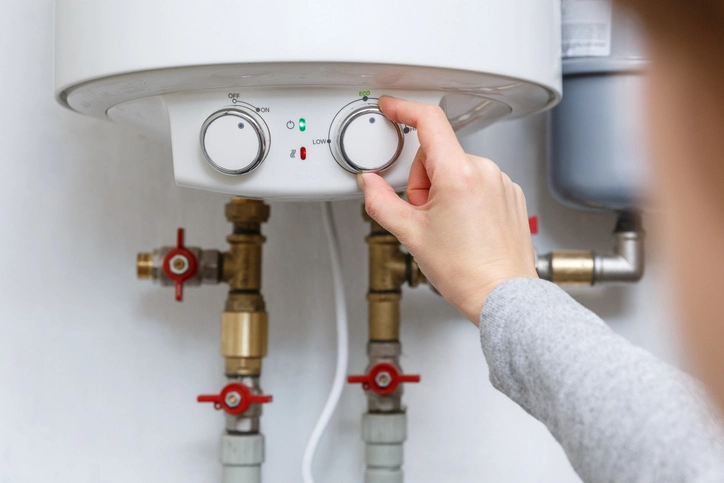
Few appliances are as essential to home comfort as the water heater. Whether you're taking a relaxing hot shower, washing dishes, or doing laundry, having a reliable source of hot water is crucial. For homeowners in Prescott, understanding the different types of water heaters and selecting the right one can make a significant difference in energy efficiency, cost, and overall satisfaction. This guide will walk you through the various water heater options and help you make an informed choice.
At Mr. Rooter Plumbing of Yavapai, Coconino, and Maricopa Counties, we pride ourselves on providing top-notch plumbing services, including expert advice and professional installation of water heaters. Our commitment to services Done Right ensures that your plumbing needs are met with the highest standards of quality and reliability.
Types of Water Heaters
Traditional Tank Water Heaters
Traditional tank water heaters are the most common type found in homes. They store a large volume of water and keep it heated at a set temperature, ready for use at any time. They generally have lower upfront costs compared to tankless and heat pump water heaters and are easy to install and maintain.
However, they are less energy-efficient, as they constantly heat water to maintain the set temperature, leading to higher energy bills. Due to the size of the tank, they also require more physical space. Their lifespan is shorter than that of other kinds of water heaters, as they typically last 10-15 years.
Tankless Water Heaters
Also known as on-demand water heaters, tankless models heat water directly without the need for a storage tank. When hot water is needed, cold water travels through a pipe into the unit and is heated by either a gas burner or an electric element. Pros include their energy efficiency, as they only heat water when needed, thus reducing energy consumption, and their space-saving compact design, which allows for installation in smaller spaces.
Additionally, they typically have a longer lifespan than traditional tanks, often lasting 20 years or more. However, they come with a higher initial cost and may require upgrades to the home's electrical system or gas lines, which adds to the complexity of installation.
Heat Pump Water Heaters
Heat pump water heaters (also known as hybrid water heaters) use electricity to move heat from the air or ground to heat water rather than generating heat directly. One of the main advantages is energy efficiency, with these models often reducing energy use by up to 50% compared to traditional ones. Additionally, they have a lower carbon footprint due to reduced energy consumption, making them more environmentally friendly.
However, there are some drawbacks to consider. These models have a higher upfront cost, and installation can be more complex. They also require more space, as they need to be placed in areas with sufficient airflow.
Factors to Consider for Your Home
The size of your home and the number of occupants greatly influence the type of water heater best suited to your needs. For larger families or homes with high hot water demand, a traditional tank or a larger tankless unit might be necessary. Conversely, smaller households may benefit from the efficiency and space-saving advantages of a tankless or heat-pump water heater.
Prescott's climate can also affect your decision. While traditional tank and tankless water heaters are suitable for most climates, heat pump water heaters are highly efficient in temperate environments. However, they may lose efficiency in colder temperatures, making them less ideal for unheated spaces.
Installation and Maintenance
Proper installation is critical for the optimal performance and longevity of your water heater. Poor installation can lead to inefficiencies, increased energy costs, and potential hazards. Regular maintenance is also key to extending the lifespan of your water heater and ensuring it operates efficiently.
Here are some maintenance tips:
- Annual Inspection: Have your water heater inspected annually by a professional to check for any issues and ensure it’s functioning properly.
- Flushing the Tank: Draining and flushing your water heater tank once a year helps remove sediment buildup, which can affect efficiency and lifespan.
- Check the Anode Rod: Inspect the anode rod every few years. This rod prevents tank corrosion, and replacing it when necessary can prolong the life of your water heater.
- Insulate the Tank: Adding insulation to your water heater and pipes can improve efficiency, especially in colder climates.
When it comes to water heater installation, maintenance, and repair, trust the experts at Mr. Rooter Plumbing of Yavapai, Coconino, and Maricopa Counties. Our commitment to service Done Right ensures that your plumbing needs are met with professionalism and expertise. If you’re considering a water heater upgrade or installation, contact our team today. We’re here to help you find the perfect solution for your home’s hot water needs.
Request a service call today!

